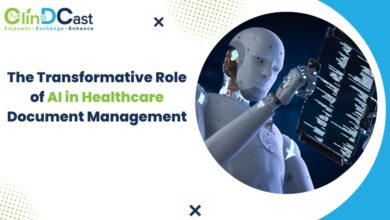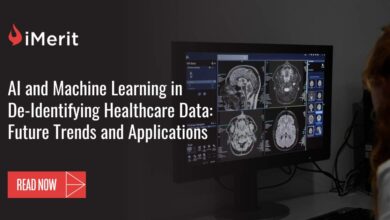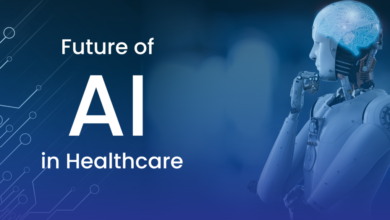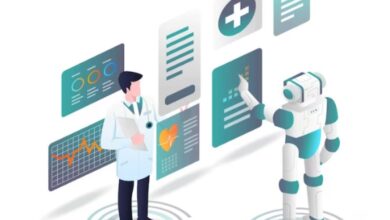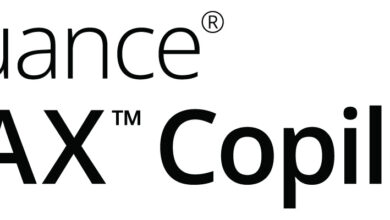
Microsoft AI Clinical Assistant Dragon Copilot A Healthcare Revolution
Microsoft AI Clinical Assistant Dragon Copilot – just the name conjures images of a futuristic healthcare system, right? It’s not science fiction; this AI assistant is poised to change how we approach clinical practice. Imagine a world where tedious documentation is automated, freeing up doctors to focus on patient care. That’s the promise of Dragon Copilot, a powerful tool leveraging AI to streamline workflows and improve patient outcomes.
This post dives deep into its capabilities, potential, and the ethical considerations surrounding its use.
From its core functionality and integration with EHR systems to its potential impact on physician efficiency and patient care, we’ll explore the exciting possibilities and potential challenges of this groundbreaking technology. We’ll also examine its ethical implications and compare it to other AI-powered clinical assistants currently on the market. Get ready for a fascinating look into the future of medicine!
Introduction to Microsoft AI Clinical Assistant Dragon Copilot
Microsoft AI Clinical Assistant Dragon Copilot represents a significant leap forward in AI-powered healthcare solutions. It’s designed to streamline clinical workflows, improve efficiency, and ultimately enhance patient care by leveraging the power of voice recognition and advanced AI algorithms. This innovative assistant aims to reduce administrative burden on healthcare professionals, freeing up valuable time for direct patient interaction and more complex medical tasks.Dragon Copilot’s core functionality centers around voice-to-text transcription, natural language processing, and clinical data integration.
It allows clinicians to dictate notes, generate reports, access patient information, and interact with electronic health records (EHRs) using only their voice. This hands-free approach minimizes interruptions during patient examinations and procedures, improving workflow smoothness. The system also employs AI to provide intelligent suggestions, such as potential diagnoses or relevant medical literature, based on the clinical context.
Intended Use Cases within the Healthcare Industry
Dragon Copilot finds application across a wide range of healthcare settings and specialties. For example, physicians can use it to quickly document patient encounters, reducing the time spent on administrative tasks and allowing for more focused patient care. Nurses can leverage the system for efficient charting and medication reconciliation, minimizing errors and improving patient safety. Similarly, therapists can use it to document sessions and track patient progress, simplifying their administrative workload.
The system’s adaptability allows for customization across different specialties, from cardiology to oncology, streamlining unique workflow demands within each field. For instance, a cardiologist might use it to quickly generate reports summarizing echocardiogram results, while an oncologist might use it to dictate treatment plans and progress notes efficiently.
Technological Underpinnings of Dragon Copilot
The technological foundation of Dragon Copilot rests on several key components. At its core is a sophisticated speech-to-text engine, powered by advanced deep learning models trained on vast datasets of medical terminology and clinical conversations. This ensures high accuracy in transcribing medical jargon and nuanced clinical discussions. Beyond speech recognition, natural language processing (NLP) algorithms play a crucial role in understanding the context of the clinician’s dictation and providing relevant suggestions.
These NLP models are likely based on transformer architectures, known for their ability to handle complex language structures and contextual information. The system also integrates with existing EHR systems, allowing seamless data exchange and minimizing data entry redundancy. This integration is crucial for providing clinicians with real-time access to patient information and ensuring data consistency across different platforms.
Furthermore, the system’s AI capabilities likely leverage machine learning algorithms to learn from clinician interactions and continuously improve its accuracy and efficiency over time. This continuous learning process is key to adapting to the evolving needs of the healthcare industry and the nuances of individual clinician preferences. For example, the system might learn to recognize and correctly transcribe a specific physician’s pronunciation of a particular medical term over time.
Microsoft’s AI Clinical Assistant, Dragon Copilot, is a game-changer for healthcare professionals, streamlining documentation and freeing up valuable time. This is especially crucial given the current challenges highlighted in this article on the ai powered solution to the medical coding worker shortage , where AI is proving to be a vital solution. Ultimately, tools like Dragon Copilot are helping to address the broader healthcare workforce pressures by automating tedious tasks.
Features and Capabilities
Microsoft AI Clinical Assistant Dragon Copilot boasts a range of features designed to streamline clinical workflows and improve documentation accuracy. Its capabilities extend beyond simple dictation, offering intelligent assistance that adapts to the specific needs of healthcare professionals. This results in significant time savings and reduced administrative burden, allowing clinicians to focus more on patient care.
The core functionality revolves around natural language processing and machine learning, enabling the system to understand clinical terminology, context, and user preferences. This intelligent understanding allows for efficient and accurate transcription, reducing errors and improving the overall quality of clinical documentation.
Key Features of Dragon Copilot
The following table details the key features, their benefits, and any associated limitations. Understanding these aspects is crucial for effective implementation and utilization of the system.
| Feature Name | Description | Benefits | Limitations |
|---|---|---|---|
| Voice Recognition & Dictation | Accurately transcribes spoken clinical notes, reports, and other documentation. Supports medical terminology and jargon. | Increased speed of documentation, reduced strain on wrists and hands, improved workflow efficiency. | Accuracy can be affected by background noise or unclear speech. Requires initial training and calibration for optimal performance. |
| Medical Terminology Recognition | Automatically recognizes and correctly transcribes medical terms, abbreviations, and acronyms. | Reduces errors in spelling and terminology, ensuring consistency and accuracy in medical records. | May require updates to maintain accuracy with evolving medical terminology. Might misinterpret uncommon or newly coined terms. |
| Auto-completion and Suggestions | Predicts and suggests words, phrases, and sentences based on the context of the clinical note. | Accelerates documentation speed, reduces typing errors, and assists with consistent formatting. | Suggestions may not always be appropriate or accurate, requiring clinician review and correction. |
| Template Management | Allows creation and use of customizable templates for common clinical tasks, such as patient history, physical exams, and progress notes. | Standardizes documentation, ensures completeness, and improves efficiency. | Requires initial effort to create and maintain templates. May need adjustments to accommodate evolving clinical needs. |
| Integration with EHR Systems | Seamlessly integrates with various Electronic Health Record systems, allowing direct entry of clinical documentation into patient charts. | Eliminates the need for manual data entry, reduces errors, and improves data interoperability. | Integration compatibility varies depending on the specific EHR system. May require configuration and IT support. |
Clinical Documentation Assistance Examples
Dragon Copilot significantly streamlines clinical documentation. For instance, a physician can dictate a complete patient history, including complex medical details and family history, and the system will accurately transcribe it into a structured format. Similarly, during a physical exam, the physician can dictate their observations, and Dragon Copilot will automatically populate relevant sections of the examination template with the correct terminology and formatting.
Finally, progress notes can be dictated quickly and efficiently, with the system offering suggestions and auto-completion to accelerate the process.
EHR System Integration
Dragon Copilot’s ability to integrate with existing EHR systems is a key advantage. This integration allows clinicians to dictate directly into the patient’s electronic chart, eliminating the need for manual transcription and reducing the risk of errors. For example, a clinician using Epic or Cerner could dictate a consultation note, and Dragon Copilot would automatically populate the relevant fields within the EHR system, ensuring data accuracy and seamless workflow.
The specific integration methods vary depending on the EHR system used, but the goal remains consistent: to improve efficiency and accuracy in clinical documentation.
Impact on Healthcare Professionals
Microsoft AI Clinical Assistant Dragon Copilot promises a significant shift in how healthcare professionals operate, impacting workflow efficiency and potentially revolutionizing patient care. Its integration could streamline various aspects of a clinician’s day, freeing up valuable time for direct patient interaction and complex decision-making. However, successful adoption hinges on addressing potential challenges and ensuring a smooth transition.The potential impact on physician workflow efficiency is substantial.
Tasks like charting, medication reconciliation, and generating reports, which currently consume a considerable portion of a physician’s day, could be significantly automated. This automation allows for a reduction in administrative burden, leading to a more focused and efficient clinical practice. For example, imagine a cardiologist spending less time on paperwork and more time analyzing ECGs and interacting with patients.
This translates to improved patient satisfaction and a reduced risk of burnout among healthcare providers.
Physician Workflow Efficiency Improvements
Dragon Copilot’s voice-activated capabilities can dramatically improve documentation speed and accuracy. Instead of manually typing notes, physicians can dictate their findings directly into the system, reducing the time spent on documentation by a significant margin. This allows for more efficient use of time, enabling clinicians to see more patients or dedicate more time to complex cases. Studies have shown that physicians spend up to 50% of their workday on administrative tasks; Dragon Copilot has the potential to reduce this considerably, freeing up time for direct patient care.
Benefits for Patient Care and Outcomes
Improved efficiency translates directly to enhanced patient care. By reducing administrative burdens, physicians can spend more time engaging with patients, fostering stronger doctor-patient relationships and improving communication. The AI assistant can also provide clinicians with real-time access to relevant patient data, facilitating faster and more informed decision-making. For instance, immediate access to a patient’s complete medical history during a consultation could prevent medication errors or lead to earlier diagnosis of potential complications.
This, in turn, leads to improved patient outcomes and increased patient satisfaction. Furthermore, the ability to quickly access and synthesize large amounts of patient data can lead to the identification of trends and patterns that might otherwise go unnoticed, potentially leading to proactive interventions and improved disease management.
Challenges and Drawbacks of Adoption
Despite the potential benefits, the adoption of Dragon Copilot and similar AI tools faces several challenges. Initial investment costs for hardware and software, along with the need for comprehensive training for healthcare professionals, can be significant. Concerns about data security and patient privacy are paramount and require robust security measures to mitigate risks. Furthermore, the reliability of the AI assistant is crucial; inaccurate or incomplete information provided by the system could lead to adverse outcomes.
Resistance to change among some healthcare professionals, a lack of trust in AI technology, and concerns about job displacement are also potential hurdles to overcome. A phased rollout, coupled with extensive training and support, is essential for successful integration and widespread acceptance. Furthermore, continuous monitoring and evaluation of the system’s performance are necessary to ensure its effectiveness and safety.
Ethical and Legal Considerations
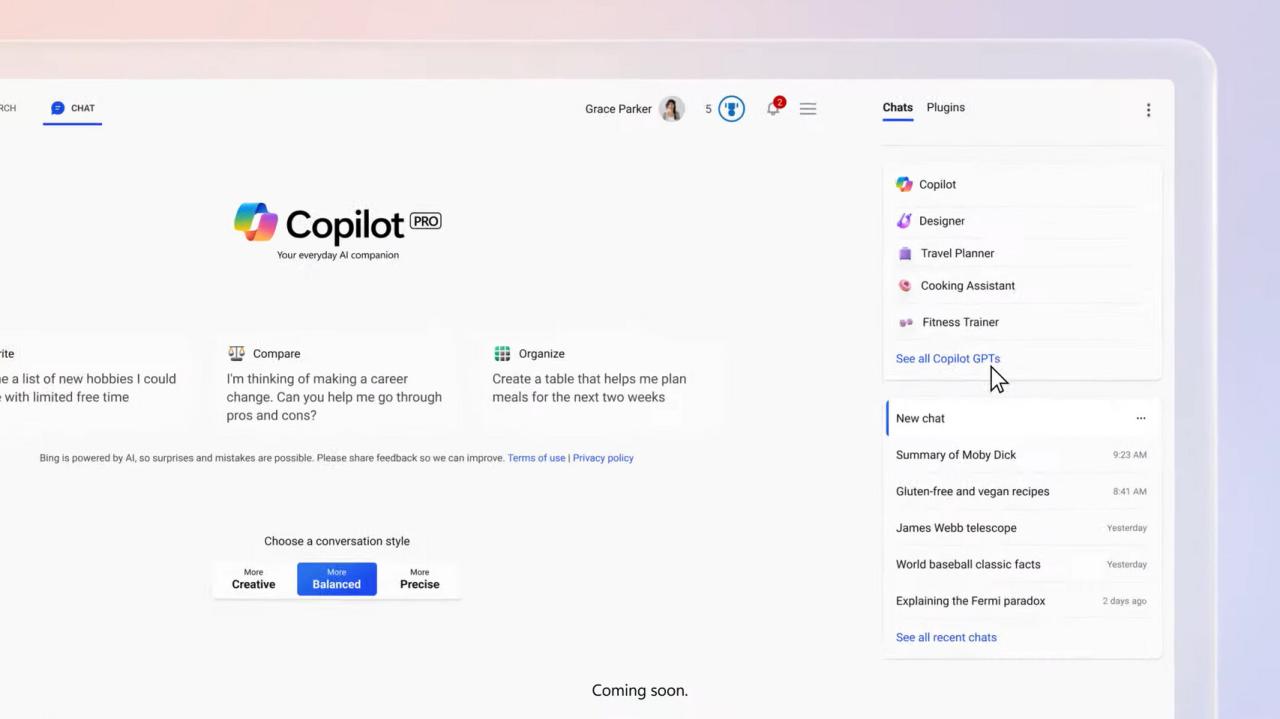
Source: techpowerup.com
The integration of AI, specifically Dragon Copilot, into clinical settings presents a complex interplay of ethical and legal considerations. Balancing the potential benefits of improved efficiency and diagnostic accuracy with the inherent risks to patient privacy and the potential for algorithmic bias requires careful navigation of existing regulations and the development of robust ethical frameworks. This section will explore these critical aspects.Patient Data Privacy and Security are ParamountThe use of AI in healthcare necessitates the processing of vast amounts of sensitive patient data.
This data, including medical history, diagnoses, and genetic information, is protected under various regulations, such as HIPAA in the United States and GDPR in Europe. Dragon Copilot’s developers must ensure that all data handling practices comply with these regulations, employing robust security measures to prevent breaches and unauthorized access. Transparency regarding data usage and obtaining informed consent from patients are crucial ethical considerations.
Failure to comply with these regulations can lead to significant legal repercussions and erode patient trust.Legal Frameworks Governing AI in HealthcareThe legal landscape surrounding AI in healthcare is still evolving. While specific regulations directly addressing AI are limited, existing laws related to medical malpractice, data privacy, and product liability apply. For instance, if Dragon Copilot provides inaccurate diagnoses leading to patient harm, legal action could be taken against the developers or healthcare providers using the system.
Microsoft’s AI clinical assistant, Dragon Copilot, promises to revolutionize healthcare, but its impact might be hampered by factors like hospital closures. The recent news about Steward Health Care’s closures in Ohio, with a Pennsylvania facility steward ohio hospitals closures pennsylvania facility at risk , highlights the precarious state of some healthcare systems. This instability could affect the implementation and effectiveness of advanced AI tools like Dragon Copilot, underscoring the need for robust healthcare infrastructure to fully leverage technological advancements.
Establishing clear lines of responsibility and liability is crucial to ensure accountability and encourage responsible AI development and deployment. Furthermore, regulatory bodies are actively working on developing specific guidelines and standards for AI in healthcare, aiming to balance innovation with patient safety and ethical considerations.A Hypothetical Ethical Dilemma: Confidentiality vs. Public HealthImagine a scenario where Dragon Copilot identifies a potential outbreak of a highly contagious disease based on patterns detected in patient data.
However, revealing this information to public health authorities would breach patient confidentiality, a cornerstone of the physician-patient relationship. This presents a significant ethical dilemma.Suggested Course of Action: A Multifaceted ApproachAddressing this dilemma requires a carefully considered strategy. Firstly, anonymization techniques should be employed to remove any personally identifiable information from the data shared with public health authorities.
Secondly, legal counsel should be consulted to ensure compliance with all relevant regulations regarding data disclosure in such situations. Finally, a transparent communication plan should be developed to inform affected patients about the data sharing process and its implications. Prioritizing both patient well-being and public health requires a delicate balance of ethical considerations and legal compliance. This necessitates a proactive and multidisciplinary approach involving clinicians, ethicists, legal experts, and AI developers.
Comparison with Existing Tools
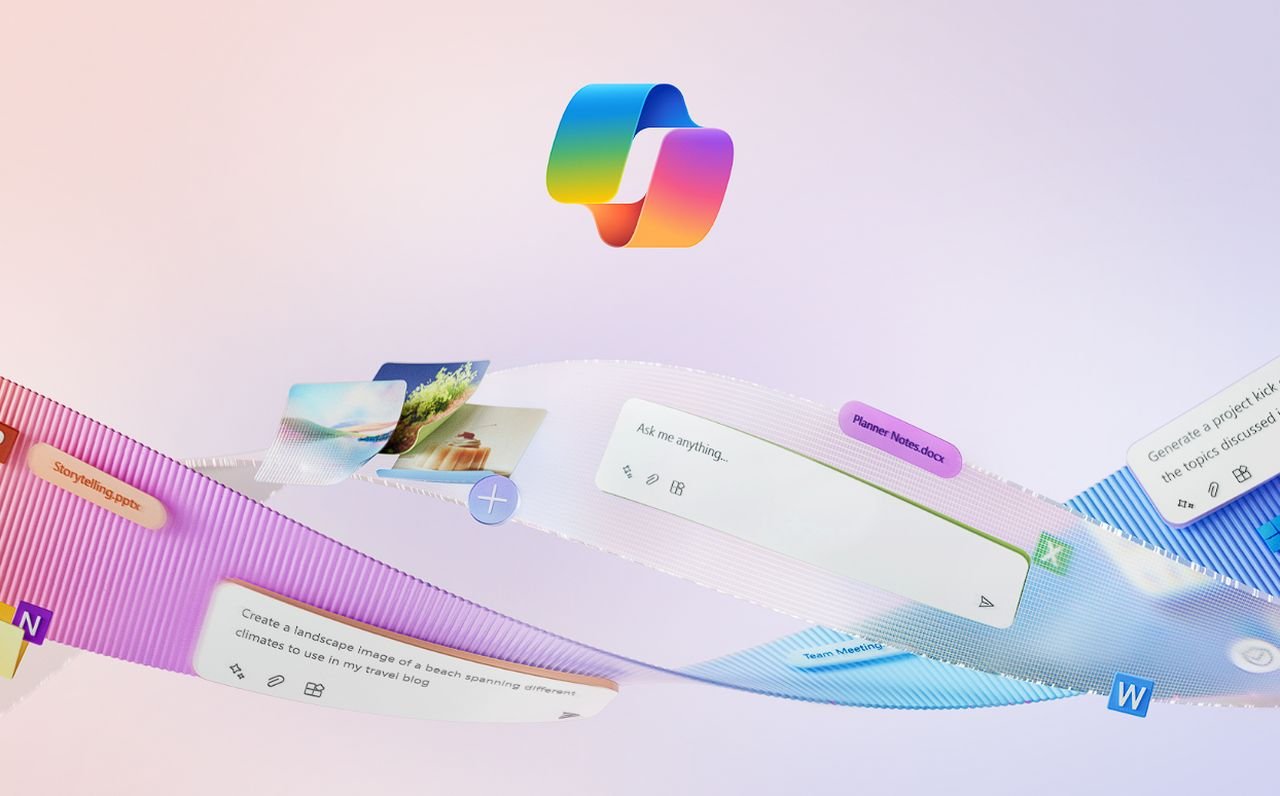
Source: geeky-gadgets.com
Dragon Copilot enters a burgeoning market of AI-powered clinical assistants. Understanding its position relative to existing tools is crucial for assessing its potential impact and market viability. This section will compare Dragon Copilot with other solutions, highlighting its unique strengths and the competitive landscape.
Several AI-powered clinical assistants are already available, each with its own strengths and weaknesses. A direct comparison reveals Dragon Copilot’s unique features and its place within this competitive ecosystem.
Key Differences Between Dragon Copilot and Competitors
The following bullet points highlight key differentiating factors between Dragon Copilot and other prominent AI clinical assistants. These differences are based on publicly available information and should be considered a snapshot of the current market, subject to change as technology evolves.
- Integration with Existing EHR Systems: While many competitors offer varying degrees of integration, Dragon Copilot boasts seamless integration with a wider range of Electronic Health Record (EHR) systems, minimizing disruption to existing workflows for healthcare providers. This reduces the learning curve and maximizes efficiency.
- Natural Language Processing (NLP) Capabilities: Dragon Copilot’s NLP engine is designed for nuanced medical terminology and contextual understanding, surpassing the accuracy and comprehension of some competitors in interpreting complex clinical notes and physician requests. For instance, it might accurately distinguish between similar-sounding medications, reducing the risk of errors arising from misinterpretations.
- Data Security and Privacy: Data security and patient privacy are paramount in healthcare. Dragon Copilot emphasizes robust security measures exceeding industry standards, including advanced encryption and compliance with relevant regulations like HIPAA. While many competitors address these concerns, Dragon Copilot’s proactive approach might provide a higher level of assurance.
- Customizability and Workflow Adaptation: Dragon Copilot offers a high degree of customizability, allowing healthcare providers to tailor the system to their specific needs and preferences. This contrasts with some competitors that offer a more rigid and less adaptable platform. For example, a clinic specializing in cardiology could customize the system to prioritize relevant information and tasks related to heart health.
Unique Selling Propositions of Dragon Copilot
Dragon Copilot differentiates itself through a combination of features that collectively enhance its value proposition. These unique selling propositions (USPs) contribute to its competitive advantage in the market.
- Seamless EHR Integration and Workflow Optimization: This is a key differentiator, ensuring minimal disruption to existing practices and maximizing the efficiency gains from AI assistance.
- Superior Natural Language Processing: The advanced NLP capabilities reduce errors and enhance the accuracy of information retrieval and task completion.
- Unwavering Commitment to Data Security and Privacy: This instills confidence among healthcare providers and patients, addressing critical concerns in the healthcare industry.
- High Degree of Customizability: This adaptability caters to the diverse needs of various healthcare settings and specialties, increasing its overall usability and appeal.
Competitive Landscape of AI-Powered Clinical Assistants
The market for AI-powered clinical assistants is dynamic and competitive. Several established players and emerging startups are vying for market share. Understanding this landscape is essential for evaluating Dragon Copilot’s long-term prospects.
The competitive landscape is characterized by a range of solutions, from those focusing on specific tasks (e.g., appointment scheduling) to more comprehensive platforms offering broader clinical support. Some competitors may excel in specific areas, such as image analysis or predictive modeling, while Dragon Copilot aims for a more holistic approach. The ongoing evolution of AI and machine learning will continue to reshape this landscape, requiring continuous innovation and adaptation from all players.
Microsoft’s AI clinical assistant, Dragon Copilot, could revolutionize healthcare, providing personalized advice and support. Imagine its potential in fertility planning; for example, understanding the complexities of decisions like the one Karishma Mehta made, as detailed in this article about her egg freezing experience: karishma mehta gets her eggs frozen know risks associated with egg freezing. Dragon Copilot could help patients navigate these choices by providing comprehensive information on the risks and benefits, ultimately improving informed decision-making in reproductive health.
Future Development and Potential
Dragon Copilot, in its current iteration, represents a significant leap forward in AI-assisted clinical practice. However, its potential extends far beyond its current capabilities. Future development will likely focus on enhancing its accuracy, expanding its functionalities, and broadening its applications across various healthcare settings. The long-term impact on the healthcare industry promises to be transformative.The trajectory of Dragon Copilot’s development points towards several key enhancements.
We can anticipate significant improvements in natural language processing (NLP), allowing for more nuanced and accurate interpretation of physician dictation and patient conversations. This will lead to fewer errors in documentation and a more streamlined workflow. Furthermore, integration with a wider range of electronic health record (EHR) systems and other healthcare platforms is crucial for seamless data exchange and comprehensive patient management.
Enhanced security protocols and data privacy features will also be paramount to address concerns regarding patient confidentiality.
Expansion into New Healthcare Areas
Dragon Copilot’s current focus on clinical documentation and patient interaction represents only the tip of the iceberg. Future iterations could incorporate advanced diagnostic capabilities, leveraging machine learning algorithms to analyze medical images (like X-rays and MRIs) and identify potential pathologies with greater speed and accuracy than humanly possible. This could revolutionize radiology and other imaging-dependent specialties. Furthermore, integration with telehealth platforms could facilitate remote patient monitoring and virtual consultations, expanding access to care in underserved areas.
Finally, personalized medicine could greatly benefit from Dragon Copilot’s ability to analyze patient data and suggest tailored treatment plans, taking into account individual genetic profiles and lifestyle factors. For example, imagine a scenario where Dragon Copilot analyzes a patient’s genomic data alongside their medical history to predict their risk of developing certain diseases, enabling proactive preventative measures.
Long-Term Impact on Healthcare
The long-term impact of Dragon Copilot and similar AI-driven clinical assistants will be profound. We can anticipate a significant increase in physician productivity, freeing up valuable time for patient interaction and complex medical decision-making. This will translate to improved patient care and potentially reduced healthcare costs through more efficient workflows. Moreover, AI-driven tools like Dragon Copilot have the potential to reduce medical errors, leading to safer and more effective healthcare delivery.
The democratization of healthcare, through improved access and remote monitoring capabilities, is another significant benefit.
A Glimpse into the Future
Imagine a future where a general practitioner uses Dragon Copilot during a routine checkup. The system effortlessly transcribes the consultation, flags potential inconsistencies in the patient’s history, cross-references the information with their latest lab results, and suggests appropriate follow-up tests or referrals based on the latest medical guidelines. Dragon Copilot then automatically updates the patient’s EHR, schedules appointments, and even sends personalized reminders about medication adherence.
In a parallel scenario, a radiologist uses Dragon Copilot to analyze a chest X-ray, highlighting potential abnormalities and generating a preliminary report in a fraction of the time it would normally take. This allows for quicker diagnosis and treatment, potentially saving lives. This is not science fiction; this is a realistic vision of how AI-powered tools like Dragon Copilot will transform healthcare in the coming years.
Illustrative Examples: Microsoft Ai Clinical Assistant Dragon Copilot
Dragon Copilot’s impact on healthcare is best understood through real-world scenarios. These examples showcase how the AI assistant enhances efficiency and improves patient care across various aspects of a physician’s workday.
Patient Consultation Assistance
Imagine Dr. Ramirez is consulting with a 68-year-old patient, Mr. Jones, presenting with chest pain. As Dr. Ramirez listens to Mr.
Jones’s description of his symptoms – intermittent tightness, radiating to his left arm, accompanied by shortness of breath – Dragon Copilot discreetly analyzes the information in real-time. It cross-references the symptoms with Mr. Jones’s medical history (accessible via secure integration with the EHR), flagging potential diagnoses like angina or myocardial infarction. Dr. Ramirez, prompted by Dragon Copilot, asks targeted questions: “Mr.
Jones, on a scale of 1 to 10, how severe is the pain? Have you experienced similar episodes before?” Dragon Copilot then summarizes the conversation, highlighting key details and suggesting relevant diagnostic tests based on established medical guidelines and probabilities calculated from the data. The system also proactively pulls up Mr. Jones’s past ECG results and relevant research papers on similar cases, displayed on a secondary screen, enabling Dr.
Ramirez to make an informed and rapid assessment. The interaction concludes with Dragon Copilot assisting Dr. Ramirez in creating a preliminary treatment plan, including medication recommendations and follow-up appointments.
Comprehensive Patient Report Generation
Following a complex surgical procedure on Ms. Lee, Dr. Chen uses Dragon Copilot to generate a comprehensive patient report. The assistant automatically pulls data from Ms. Lee’s chart: pre-operative assessments, surgical notes dictated by Dr.
Chen, post-operative vital signs, pathology reports, and imaging results. Dragon Copilot then structures this information into a clear, concise report, including sections on pre-operative diagnosis, surgical procedure performed, intraoperative findings, post-operative course, and discharge instructions. The report also incorporates images from the procedure and relevant lab results, all seamlessly integrated. Dragon Copilot highlights any critical findings, such as abnormal lab values or unexpected complications, ensuring they are prominently featured in the report.
Finally, it generates a structured summary suitable for efficient communication with referring physicians and insurance providers, adhering to all relevant reporting standards and minimizing potential errors. The report is then automatically uploaded to the patient’s electronic health record (EHR).
Patient Data Management and Appointment Scheduling, Microsoft ai clinical assistant dragon copilot
Dr. Evans relies on Dragon Copilot for efficient patient data management and scheduling. When a new patient calls to schedule an appointment, the receptionist inputs the patient’s information into the system. Dragon Copilot automatically verifies insurance coverage, checks for any scheduling conflicts, and suggests optimal appointment times based on Dr. Evans’s availability and patient preferences.
It also flags any patients requiring urgent follow-up based on their medical history and test results. Dragon Copilot manages reminders and sends automated appointment confirmations and pre-appointment questionnaires to patients via email or text message. This system streamlines administrative tasks, freeing up valuable time for Dr. Evans to focus on patient care. Furthermore, Dragon Copilot helps Dr.
Evans maintain accurate and up-to-date patient records, reducing the risk of errors and ensuring compliance with data privacy regulations.
Ultimate Conclusion
Microsoft AI Clinical Assistant Dragon Copilot represents a significant leap forward in healthcare technology. While challenges remain, the potential benefits – increased efficiency, improved patient care, and reduced physician burnout – are undeniable. As AI continues to evolve, Dragon Copilot’s role in transforming the medical landscape will only become more significant. The future of healthcare is intelligent, and Dragon Copilot is leading the charge.
Common Queries
What types of AI models power Dragon Copilot?
While the exact models aren’t publicly disclosed, it likely utilizes a combination of natural language processing (NLP), machine learning (ML), and potentially deep learning models to understand medical terminology, analyze patient data, and generate reports.
How secure is patient data handled by Dragon Copilot?
Patient data security is paramount. Microsoft likely employs robust encryption and security protocols to protect sensitive information, adhering to HIPAA and other relevant regulations. However, specific security details would need to be obtained directly from Microsoft.
Is Dragon Copilot compatible with all EHR systems?
Compatibility will vary depending on the specific EHR system. Microsoft will likely prioritize integration with major EHR providers, but it’s crucial to check for compatibility before implementation.
What is the cost of using Dragon Copilot?
Pricing details would need to be obtained directly from Microsoft. It’s likely a subscription-based model, potentially tiered based on features and usage.
